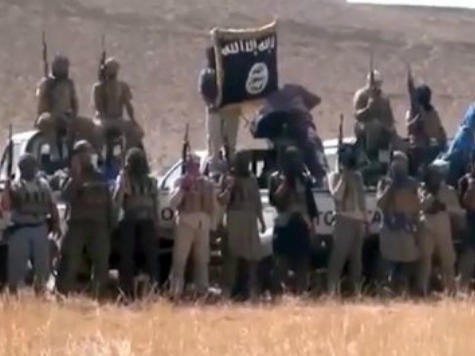On March 20, the Islamic State of Iraq and al-Sham (ISIS) staged a military parade through downtown Fallujah, fuelling speculation that the al-Qaeda splinter group now has total control over the city.
On the face of it, this confirms Iraqi Prime Minister Nouri al-Maliki’s narrative of a Sunni insurgency led by ISIS and supported by Saudi Arabia and Qatar.
Yet this narrative is a false one, debunked earlier this year by senior government whistleblowers. Nor is this the first time Fallujah has allegedly fallen to ISIS.
When ISIS militants entered the city on January 3, shortly after being driven out of Ramadi by unsympathetic locals, international media were quick to cite the raising of an ISIS flag over a building as proof of a jihadist takeover, failing to report that the flag was taken down five minutes later when tribal revolutionaries surrounded the interlopers and forced them to leave.
So what does the recent military parade signify, if not ISIS’ uncontested dominion over Fallujah? Although it demonstrates the group’s increasing strength, Al-Monitor contends that last week’s display of force in fact represents an audacious challenge to the tribal authorities, who really do control the city. Whether ISIS will emerge victorious from this power struggle remains to be seen.
And who, really, is responsible for the rise of ISIS in Iraq? Maliki blames Saudi Arabia and Qatar, but the Prime Minister of Iraqi Kurdistan disputes this, telling Asharq al-Awsat that his government has “not seen any evidence” to justify such accusations.
Indeed, Maliki appears already to have backtracked on his earlier remarks, shying away from reiterating the allegations against the Gulf states even when pressed to do so by delegates at an international counter-terrorism conference held in Baghdad on March 12-13.
If any regional power is backing ISIS, it is likely to be Iran. Despite their support for the embattled dictatorships in Damascus and Baghdad, the mullahs in Tehran – masters of duplicity that they are – have a vested interest in saturating the opposition to Assad and Maliki with fighters deemed unpalatable to the United States and its allies, thereby discouraging Western military intervention on the side of the rebels.
The US Treasury Department has documented for years the various means by which Iran’s clerical rulers play this guileful double game, allowing their country to be used “as a transit point for moving funding and foreign fighters through Turkey to support al-Qaeda-affiliated elements inside Syria.”
There is already plenty of evidence to suggest that ISIS gunmen killed or captured in Iraq and Syria arrived there with the blessing of the Iranian regime, including reports of Shi’ite members of the Islamic Revolutionary Guard Corps (IRGC) masquerading as Sunni jihadists. One Iraqi MP has even gone so far as to describe ISIS as an “arm” of the IRGC.
For the tribal revolutionaries in Fallujah, where the death toll from a three-month siege by government troops is fast approaching the 1,000 milestone, their battle to defend their city from ISIS on the one hand and Maliki’s forces on the other is far from over.
Jacob Campbell is a Senior Fellow of the Humanitarian Intervention Centre. He is @JCampbellUKIP on Twitter.

COMMENTS
Please let us know if you're having issues with commenting.